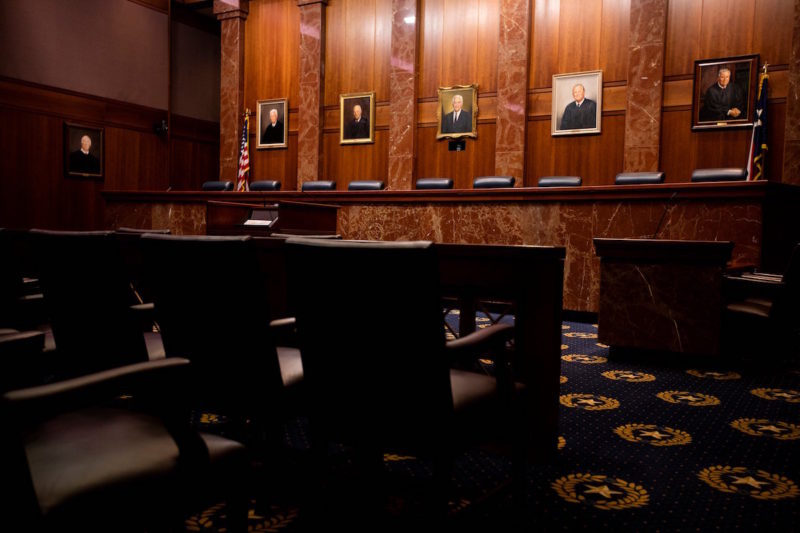The Texas Supreme Court has denied a request from the House Democratic Caucus to nullify a recent veto by Governor Greg Abbott and restore funding to the legislative branch.
The court ruled that the governor did not act unconstitutionally. In an unsigned consensus opinion, the court sought to rebut claims by the plaintiffs that Abbott’s veto had threatened the separation of powers and the very existence of the legislature.
The dispute dates to May 31, the last day of the regular session of the legislature, when Abbott said he would veto funding for the entire legislative branch in retaliation for a walkout by Democratic members that killed an election bill supported by the governor.
“No pay for those who abandon their responsibilities,” Abbott stated. When the governor followed through on the threat in June, he wrote in his veto proclamation, “funding should not be provided for those who quit their jobs early.”
Abbott’s framing of the issue obscured the fact that legislators would continue to receive their pay — $600 per month plus per diem — because it is guaranteed under the constitution and thus not dependent on legislative appropriation. The veto instead would affect the salaries and benefits of some 2,100 state employees, starting September 1 when the new fiscal year begins.
In its opinion published Monday, the all-Republican Supreme Court acknowledged “concerns” over “interference by one branch of government with the effectual function of another,” but added that the governor’s decision to call back-to-back special session after the regular session had changed things and shifted the onus back to legislators themselves.
“The special session has shifted disagreement from Article X [legislative] funding to the order in which legislation is considered, a matter entirely internal to the Legislature. Legislators have decided to prioritize passage of legislation on elections and other subjects over passage of an appropriation bill to replace the vetoed Article X.”
“While Democratic members object to this ordering of bills, such internal disagreements among legislators are routinely part of the legislative process and do not implicate the separation-of-powers doctrine.”
The justices went on to note that the legislature could have used the special session that began in July to reinstate legislative funding. “It could have done so without addressing any of the other items listed in the Governor’s call, and it could have enacted an Article X funding bill more than ten days before adjournment, which would have enabled it to override any attempt by the Governor to again veto Article X.”
“Under these circumstances, the Governor’s veto of Article X followed by his call of a special session neither prevents the Legislature from funding itself nor forces the Legislature to enact legislation of the Governor’s choosing.”
A new 30-day special session started Saturday. By Monday evening, 95 members of the legislature were present in the chamber — five shy of a quorum — including 13 Democrats, some of whom had returned from Washington.
The court wrote in its opinion that with the new session gives lawmakers another “opportunity to vote to appropriate revenues to the legislative branch.”
In the meantime, the Legislative Budget Board, a standing committee of the legislature that has certain interim budget powers, including the ability to shift funds between agencies, has announced an allocation of one month of funding for legislative agencies through October.
That pushes back the deadline at which they would run out of money, allowing more time for a political solution.
